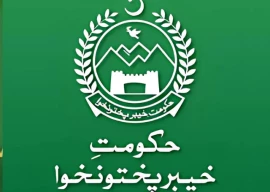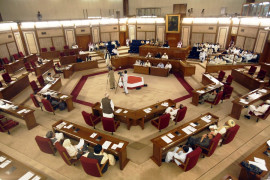
The federal cabinet has approved the devolution of seven more ministries to the provinces but has decided to retain the ministers in an apparent move to keep the ruling coalition intact.
The devolution marks the third and final phase of the implementation of the 18th amendment and brings the total number of devolved ministries to 17.
“It has been decided to retain federal ministers of devolved ministries,” said Information Minister Firdous Ashiq Awan at a news conference after the special cabinet meeting.
Ten federal ministries were earlier devolved to the provinces in two separate phases on the recommendation of a high-powered parliamentary commission to ensure the implementation of the 18th amendment that envisaged more administrative and financial autonomy for the federating units.
Prime Minister Yousaf Raza Gilani, who chaired the cabinet meeting, called the move an “unprecedented and historic” step to strengthen democracy, declaring July 1, from which the devolution would be effective, as the provincial autonomy day.
Ministries to be devolved in the third phase are that of women development, minority affairs, sports, environment, health, food and agriculture, and labour and manpower.
Portfolios of federal ministers heading these ministries might be changed but they will continue working, supervising several attached departments which still remain under supervision of the federal government, Awan explained.
She was flanked by the head of the Implementation Commission Senator Raza Rabbani, Minister for Water and Power Naveed Qamar and Awami National Party (ANP) Senator Afrasiab Khattak, who is a member of the commission.
Rabbani announced that the commission had completed its task as 17 ministries had been devolved to the provinces under Article 270AA of the constitution.
“Empowering provinces will give a jolt to separatists and strengthen nationalist forces who were striving for rights within the ambit of democratic norms,” Rabbani said, while responding to a question about how devolution will help address separatists’ issues, particularly in Balochistan.
“This is biggest-ever restructuring since 1947,” said Rabbani, while felicitating the country’s political leadership over the implementation of the 18th constitutional amendment. “It [devolution] will empower provinces to provide relief to their people,” he said.
Rabbani told reporters that some 37,429 employees of the newly-devolved ministries and their related departments had been affected but adjustment of affected people will be the government’s top priority.
According to a breakup of employees, 13,178 are civil servants, 12,006 are related to autonomous bodies and 12,200 are project employees.
When asked about the fate of the Workers Welfare Fund (WWF), Employees Old-Age Benefit Institute (EOBI) and National Commission on Human Development (NCHD), Rabbani said the first two were trans-provincial subjects and the commission had suggested a joint ownership of federal and provincial governments.
The issue will be resolved within a year following consultation with the provinces, he said.
While talking about the NCHD’s fate, Rabbani said that the Council of Common Interests (CCI) will take up the matter since it had given the earlier ruling. It is, however, the prime minister’s prerogative to convene its meeting and take further decisions. He explained that the NCHD’s management was taken into confidence and it was well aware of devolution of powers.
Constituted on May 4, 2010, the commission was assigned the task to complete the devolution process within a year. It held 68 formal meetings besides several informal sessions to take provincial governments and other stakeholders into confidence.
With the completion of the devolution process, Senator Khattak said, provinces had been empowered to take good care of their people.
Published in The Express Tribune, June 29th, 2011.

















COMMENTS (8)
Comments are moderated and generally will be posted if they are on-topic and not abusive.
For more information, please see our Comments FAQ